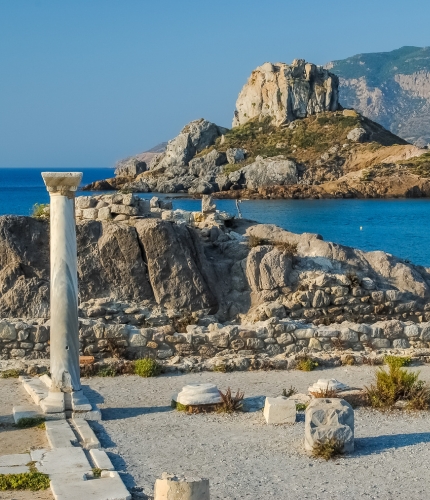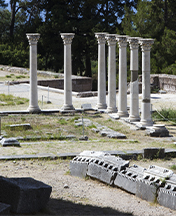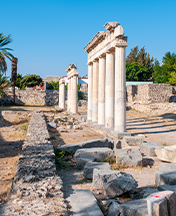According to Greek mythology, Kos is the sacred place of Asklepius, god of medicine and healing. The archaeological findings prove that the history of Kos begins in prehistoric times. Minoans settled on the island around 14th century B.C., followed by the Achaeans, and, a few centuries later, the Dorians, who built the ancient city of Kos. The Persians invaded and occupied the island of Kos around 5th century B.C., but were defeated by the Athenians, who regained control over the island after the Battle of Salamis. Hippocrates, the father of Medicine and founder of the first Medical School, was born in 460 B.C. After his death in 357 B.C., the residents of Kos built the Asclepieion to honor Hippocrates and the god Asclepius. In 394 B.C., Kos entered into a new alliance with Athens, and democracy was introduced to Kos. This was a period of great cultural, educational and economic development. In 335 B.C., the island of Kos became part of the Macedonian Empire, and in 82 B.C. became part of the eastern colony of the Roman Empire. Subsequently, in 1204 A.D., Kos was occupied by the Venetians. The Knights of the Order of Saint John, who settled in Rhodes, also assumed control over Kos in 1315 A.D.; in 1522, the island was occupied by the Turks, who ruled it until 1912. Kos was subsequently surrendered to the Italians, Germans, and the British, until finally, in 1948, it was united with the rest of Greece.














